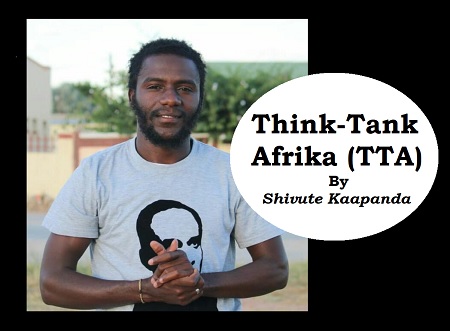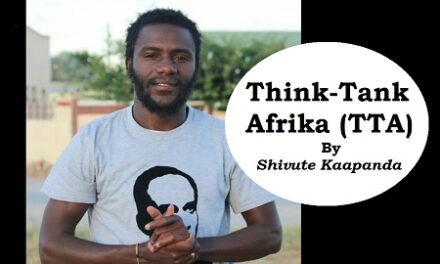Harmony: a state of social synthesis
By Shivute Kaapanda [Think Tank Africa]
HARMONY is a social concept that countless global societies embrace. In any social interaction and in all social collections such as households, villages, in groups such as cultural, religious and political groups the concept of harmony is fundamental in collective decision making.
Harmony is the state of collectivity and togetherness in support of common norms, values and ideologies. The concept of harmony was long theorized and narrated in pythagoreanism. It has roots in Platonism and was moralized in Chinese classics especially in the extended arguments of Chinese philosophies.
In light of democracy, the state of harmony is defined by political synthesis; this is the niche concept of harmony in a political society in democratic societies.
In general, harmony is a social creation defined by conjunction, ethics, and love and by the spirit of oneness. This oneness is the composition of different elements toward the considerable achievement of one goal of which each element maintains individual identity toward unity. In humanity harmony is an important aspect of human interaction which enhances social, cultural and political achievements in a given society.
On the other hand democracy is a system of rule of people by people which by critical analysis contradicts with political harmony; the end result is the negation of political synthesis.
Having considered the concept of harmony in a historical perspective, in Namibia the state of political harmony is worrying and questionable because before we pull together (Harambee) the first thing is that we must come together; supreme logic dictates that you cannot pull together when you are not together.
This is the current state of confusion in our politics that we need to address. Democracy as a social concept helps to liberate societies in political interactions, giving democratic rights and freedoms such as rights to vote, rights to engage in political activities, freedom of speech and conscience, freedom of association, etc. This enhances robust political dialogues that birth radical social transformation but at the same time it causes ideological divisions due to different opinions between individuals.
Is democracy a negation of political synthesis?
In an attempt to extend the argument of democracy as a tool that contradicts political synthesis let’s drink from the principles of harmony and the law of the unity of opposites. In his works “Chinese Philosophy on Life” Professor Wang Keping emphasizes that “… harmony is advocated in Confucianism as a strategy through which to address social problems and stabilizes human relations.”
Prof. Keping went on to demonstrate the concept of harmony with a soup and music allegory; he concludes that – a delicious soup cannot be made with a single ingredient, and a fine music cannot be played on a single note; which means a soup made from variety of ingredients is tastier because of its organic mixture of flavors; the same can be correct for the music due to the integrated melody of different sounds.
This argument is based on the premise that the more the different elements are united, the bigger the achievement is made which is mutually creative.
Harmony is a dynamic process of creative transformation during which all the elements involved undergo a transformational synthesis, changing and collaborating but maintaining individual identities. Harmony suggests a dialectic state in which the opposites are united.
This signifies a moral society that is defined by the spirit of oneness. Harmony is the unity of opposites, the point of unity by opposing opinions. If the opposites are not united then there is no state of harmony in a country.
In one of the famous and principled arguments of Marx and Engels of dialectical materialism which can be equated to political synthesis and harmony, they argued that the development of any object or process takes place in three stages which forms a “triad”: thesis, anti-thesis and synthesis. This argument demonstrates the law of development through the struggle of the opposites.
We cannot achieve peace and stability in an opposing state because the poor and the rich are pulling in different directions, the poor want to be rich, the rich want to be richer by exploiting the poor. There cannot be peace when people and systems are corrupt.
There cannot be stability when the gap between the rich and poor is as wide as the ocean, there cannot be a spirit of Harambee when we have high unemployment rates and people sleep on empty stomachs.
Our democratic system is repressing us through capitalistic stewardship.
We need political synthesis and harmony in addressing social ills and this time we must consider the spirit of Ubuntu before that of Harambee.
– Shivute Kaapanda is a critical pan-African thinker and writer, columnist, and author of the book “The Conscious Republic” published in 2020. iskaapanda@gmail.com






